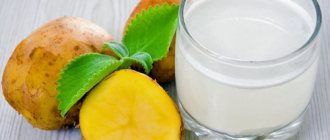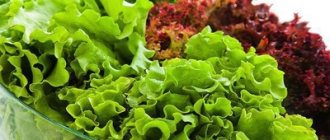Pancreatitis is a fairly common disease characterized by inflammation of the pancreas. At the same time, its functions and digestive processes are disrupted. Therefore, diet is very important for pancreatitis. Many foods are excluded from the diet because they irritate the pancreas.
Most often, a diet must be followed throughout life, since it is difficult to completely restore the functions of this organ and if there are errors in nutrition, an exacerbation may occur again. But many patients get tired of a monotonous diet, so they ask doctors whether or not they can eat certain foods. Very often such questions are asked about grapes.
Useful properties of the product
A patient suffering from symptoms of pancreatitis is interested in: Is it possible to eat grapes with pancreatitis? First, let's look at the useful properties:
rare grape variety
- Grapes contain a large amount of B vitamins, which are responsible for the condition of the nervous system. These vitamins help reduce the negative effects of stress on the body. As well as a high content of vitamins A and C, which are involved in growth and regeneration and immune processes, respectively.
- Thanks to the content of antioxidant complexes, the aging process is delayed and the condition of the skin, hair and nails is improved.
- The folic acid content has a beneficial effect on the performance of brain cells. In pregnant women, folic acid specifically works in the formation of the child's brain.
- Grapes contain: potassium - normalizes heart function and strengthens the heart muscle; phosphorus - strengthens bone tissue and teeth; calcium is a building unit of bone tissue and is also involved in the nervous regulation of the excitation-inhibition system; magnesium - participation in the immune system and heart function. The presence of all minerals in grapes affects the development and strengthening of the human immune system.
- Thanks to acids and fiber, it participates in digestion.
- Trace elements help in the formation of new bone marrow cells.
- Grapes cleanse the body of salts, waste, toxins, as well as phlegm in inflammatory diseases of the bronchi and pulmonary system.
can I have grapes?
The answer to the question of whether you can eat grapes with pancreatitis will be the form of pancreatitis and the stage of the disease. Grapes should be eaten with caution, as they have an increased effect on the pancreas.
Acute stage
Pancreatitis and grapes are not very compatible, since these berries contain substances that negatively affect the functioning of the gland. Glucose causes the organ to secrete a large amount of secretion. Fiber provokes flatulence, bloating and even diarrhea. In addition, grapes contain a high content of organic acids, which stimulate the production of enzymes, which means that iron will work harder.
grapes in the acute stage of pancreatitis
The presence of acids in grapes causes an allergic reaction, which will lead to inflammation of the pancreas as a manifestation of a reaction in defense of the body. Therefore, in case of acute pancreatitis, it is recommended to completely avoid grapes.
Chronic stage
You can eat grapes for pancreatitis, provided there are no symptoms of diabetes and in remission. During exacerbation of the disease, consumption of berries is contraindicated. However, in the remission stage, the diet for chronic pancreatitis allows the intake of grapes in the absence of concomitant diseases of the endocrine system - diabetes mellitus or prediabetes.
Eating grape leaves is a good help for the healthy berry, because they contain enough antioxidants and vitamins.
Acute pancreatitis
Patients who adore sour and sweet varieties of fruit will have to give up the delicacy when diagnosed with “acute pancreatitis.”
- more than half of the beneficial substances of grapes are contained in glucose, the sugar substance is already in excess in the body of a patient with pancreatitis;
- thanks to organic acids and fiber, grape berries cause excessive gas formation and diarrhea;
- the berries contain an abundance of acids, which, due to their chemical composition, provoke excessive production of pancreatic juices necessary for processing. This strains the pancreas and, if the “delivery” of pancreatic juice to the stomach is disrupted, the pancreatic juices will begin to digest the organ, destroying the tissue;
- acids cause severe allergies.
Recommendations for consumption
Taking grapes for pancreatitis of the pancreas completely depends on the stage of the disease, the form and course of the disease. During the period of remission, it should be introduced into the diet with caution, starting with small doses (3-5 berries). At the same time, carefully monitoring the patient. If you experience discomfort in the epigastric area, nausea, avoid grapes. In the absence of symptoms, you can gradually increase the dose to 10-15 berries per day.
You should not eat grapes in large quantities, as the glucose content will “force” the pancreas to produce an increased volume of secretions, which leads the organ to self-destruction.
grape juice
After eating healthy berries, rinse your mouth. Contained acids destroy tooth enamel.
When eating berries, spit out any seeds you come across. There is an opinion that grape seeds contain substances that have a destructive effect on cancer cells. But with pancreatitis, eating berries with seeds is not recommended, since entering the stomach increases its efficiency, as well as the activity of the pancreas.
Inflamed pancreas and grapes
Grapes are a berry rich in vitamins and have various healing properties. It is an antioxidant, rich in fiber, contains potassium, iron, and protein. Like any fresh fruit, it helps the digestion process, strengthens the immune system, and is involved in the prevention of cancer and cell aging.
It would seem that grapes cannot be harmful for pancreatic disease, but not everything is so simple. There are a number of contraindications for eating grapes for pancreatic diseases.
The reasons why grapes are not recommended for patients diagnosed with pancreatitis are discussed below:
- Grape berries contain a large amount of acids (malic, citric, oxalic, etc.), which harm the functioning of enzymes and cause irritation of the pancreas.
- Fiber helps remove substances accumulated in the body, which can provoke increased diarrhea and gas formation, which often affects patients with pancreatitis.
- Grapes are a sweet fruit; they are rich in glucose and sugars, which are poorly tolerated in this disease.
- Grapes are an allergen.
Consequently, in acute pancreatitis and during exacerbation, grapes can intensify the inflammatory process and provoke severe pain in the stomach, and therefore should be completely excluded.
What about grapes for chronic pancreatitis? During the “lull” of the disease, in the absence of attacks of pain, the patient is still allowed a small dose of these sweet berries (in the absence of insulin deficiency and depending on the specifics of the individual patient’s case).
Grapes will be useful for those patients who have low stomach acidity - it will help normalize its level.
How much berries you can eat will be determined by your doctor. The usual daily intake is 10-15 berries; they should be eaten pitted and skinless, ripe and thoroughly washed. It is advisable not to eat more than one type of fruit per day.
Grapes should be introduced into the diet a little at a time, monitoring the body’s reaction. Remember that pampering your body in small quantities (not during exacerbations, of course) is even useful. Do not forget to rinse your mouth thoroughly after eating berries - grapes have a negative effect on tooth enamel.
Can I drink grape juice?
If you have any form of pancreatitis, you should not drink grape juice. The ban applies not only to industrially produced juices, but also those made by squeezing at home.
grape juice for pancreatitis
Very rarely, the attending physician allows you to drink grape juice and only under the condition of long-term remission of pancreatitis. The concentrated drink is drunk diluted with water and no more than 100 ml per day. Beneficial properties of juice:
- improves liver function;
- stabilizes the activity of the heart;
- improves metabolism;
- promotes vasodilation;
- prevents the development of leukemia, rickets and scurvy thanks to the vitamins contained in the juice.
When preparing the drink, you must avoid adding sugar. There is enough glucose in the grapes themselves.
What to replace
An alternative to grapes and juice is raisins. Dried fruits contain a large amount of sugar, so you should not eat them by the handful. Raisins are added to permitted food products: low-fat cottage cheese, porridge or savory baked goods, casseroles.
raisin
In case of acute pancreatitis, avoid raisins. But you can compote it with other fruits or dried fruits. This drink is a storehouse of vitamins and saturates the body, and also contributes to the variety of dishes in the diet.
grape leaves
Grape leaves, instead of the berries themselves, are eaten for any form of disease, but in small quantities. The fiber contained will allow the digestive system to function properly, removing unnecessary toxins from the body. It is possible to use the leaves in the form of a decoction, as a replacement for white cabbage when preparing cabbage rolls, or when adding to salads. The leaves have significantly lower sugar content than the berries. But if you eat a lot (or drink a decoction), then a disruption in the functioning of the pancreas will occur.
Chronic pancreatitis
With chronic pancreatitis the situation is somewhat simpler. When the exacerbation ends, it is advisable to wait before returning grapes to the diet. The berry is introduced gradually, otherwise the gastrointestinal tract will react in an unnecessary way.
People who naturally have low stomach acidity should not worry. Due to the content of substances in fruits that resemble acid in composition, the acidity of the stomach is normalized, which has a positive effect on the well-being of a patient with pancreatitis.
If the body reacts normally, it is allowed to eat 10 - 15 medium-sized grapes daily. Try to choose sweet varieties; sour varieties will not have a positive effect.
Recommendations for eating grapes
Even if the berries are approved by a doctor, they should not be eaten in extreme quantities. During pancreatitis, digestive enzymes end up in the mouth with saliva (creating different tastes), and the condition of the teeth is important. For this reason, patients with pancreatitis are often registered with dentists.
Acid, abundantly contained in grapes, negatively affects tooth enamel. To avoid destruction of enamel, you should immediately brush your teeth and rinse your mouth after eating fruits. This is useful and easy to do.
When it comes to choosing berries in the store, try to choose ripe fruits. When consuming, do not swallow the seeds; the seeds do not contain nutrients; digesting hard seeds will create unnecessary problems for the stomach and pancreas.
Can you drink grape juice?
It often happens that a patient is prohibited from eating a certain fruit or vegetable, but is allowed to drink juice diluted with plenty of boiled water. The doctor advises mixing carrot juice with beet juice, mashing bananas and coming up with other ways to diversify your diet. The above does not apply to grapes. Unfortunately, you cannot drink grape juice. The above applies to purchased juices and those prepared independently.










